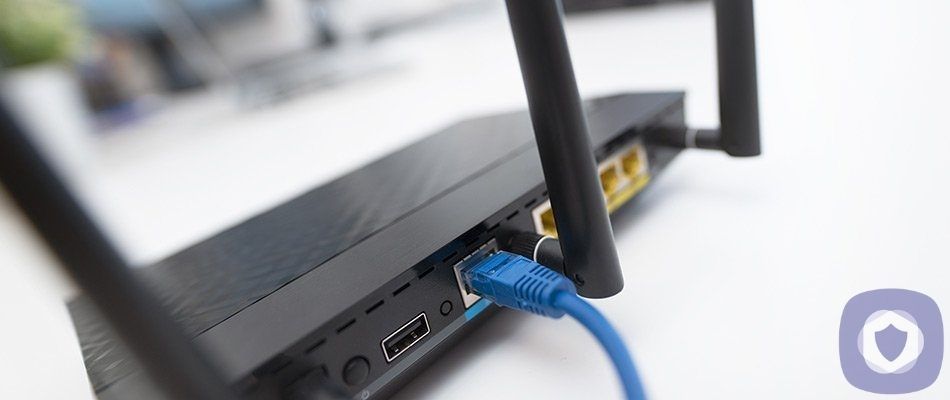Today, many households no longer have landline telephone systems. While some people opt for cell-phones alone, others choose to get their phone service through VoIP.
What is VoIP?
VoIP stands for Voice Over Internet Protocol. When you have VoIP service, your phone service doesn’t work through traditional copper phone lines. Instead, you use a computer, VoIP phone or other special device to make phone calls. VoIP technology uses “packet-switched” protocols so those signals that used to be transmitted via copper wires are converted into packets and transmitted over an Internet network.
While all this sounds technical, basically what it boils down to is that you can get cheaper phone service for your home or business when the calls are routed through the Internet. The only problem is, many home security systems use your phone line to transmit data to the monitoring companies that respond when something triggers your alarm. And, when you have a VoIP service, you no longer have a traditional phone line that can be used to transmit this data.
The good news is, you don’t have to choose between a secure home and affordable phone service. There are some VOIP alarm system or VOIP home security packages that you can purchase so you can a still get a great security system for your home, business, or apartment without going back to a traditional landline service.
You have options for a VoIP alarm system
With most home security systems that rely on telephone lines, the system relies on a specific signal being sent along your traditional phone wiring.
Unfortunately, when you have VoIP, sounds aren’t transmitted in the same way that they are on a traditional phone line with copper wires. Instead, when you speak into a VoIP phone or device, the signal is converted into digital data. This is where you run into trouble, because the digital signal your VoIP service sends isn’t recognized by all security monitoring companies as an alarm signal.
There are, however, some security systems and VoIP providers that can communicate with each other. The key factor in determining if a security system and VoIP system are compatible is the method by which the security system “talks” to the center that monitors alarm sensors.
To make sure alarms transmit signals properly, security system providers maintain updated databases of all telephone providers in each local area. Any telephone provider that is fully compatible with the security system is designated as a qualified Managed Facility Voice Network (MFVN). If you want a VoIP alarm system that can communicate over a VoIP network, you would need to find an alarm company that lists your VoIP provider as a Managed Facility Voice Network.
Your alarm system also relies on your VoIP system to remain operable and able to transmit a signal in the event of a power outage. Unfortunately, VoIP systems usually can’t do that. As a result, you typically must also have backup power or a dedicated powered network connection to ensure your VoIP service can transmit a signal when there’s no power to your home. Alternatively, your VoIP home security package could come with cellular backup in case the power goes out and your phone service stops working as a result.
Wireless systems are a great option for VoIP home security
In many cases, finding a hard-wired security system and a compatible VoIP system proves to be an impossibility, or the costs of backup power for your VoIP system make this solution impractical.
The good news is, there’s another very easy option to consider: a wireless security system. Wireless systems don’t have to be hardwired and they don’t use your phone line to communicate.
Instead, wireless systems use cellular signals to alert the monitoring sensor when there is a problem. Wireless systems also have wireless sensors that communicate with the control panel that sends these alerts. Often, the different sensors and components that make up the alarm system communicate via radio frequency with the control panel. Each different component of your system also has its own backup battery power, so you don’t have to worry about outages.
With a wireless system, it doesn’t matter if you have VoIP or if you have no home phone line at all. These systems simply don’t rely on the phone to communicate with the alarm monitors. Because of this, you don’t need to worry about backup power for your phone service — but you do need to be aware your system will only be as reliable as the cell phone signal. Be sure to read reviews of any wireless system you’re considering to make sure the signals are strong so your system stays connected.
Related: Wired vs Wireless Security Systems
Things to consider before using VoIP home security
Before you decide to install a home security system with VoIP, there are a few key things to think about:
- Are you OK with a wireless system? In most situations, you will need to find a wireless security system because it’s difficult or impossible to find a hard-wired system that can transmit a signal over your VoIP device.
- Is your system compatible? If you want to try to use a VoIP system with your home security system, you’ll need to make sure that the security company lists the VoIP provider as a Managed Facility Voice Network.
- How will transmission or communication work? If your alarm system cannot effectively communicate with the alarm monitors, it loses its effectiveness. Monitored security systems rely on communication from your system to raise the alert about a break-in, fire, or other problem at your home so the proper authorities can be notified.
- Back-up issues: Consider what will happen if the power goes out. Does your alarm system still have a way to communicate with the monitoring service?
Finding the right VoIP home security system
By carefully researching security providers in your area — including those that offer wireless home security — you should be able to find a company that works with your VoIP system. Just be sure you understand exactly how your system will communicate, what equipment you will need, and how you’re protected in the event of a power outage. By doing a little research, you can keep your home secure even without a traditional telephone line.
This article has been reviewed and approved by Officer Banta.

Officer Banta is the official SecurityNerd home security and safety expert. A member of the Biloxi Police Department for over 24 years, Officer Banta reviews all articles before lending his stamp of approval. Click here for more information on Officer Banta and the rest of our team.

